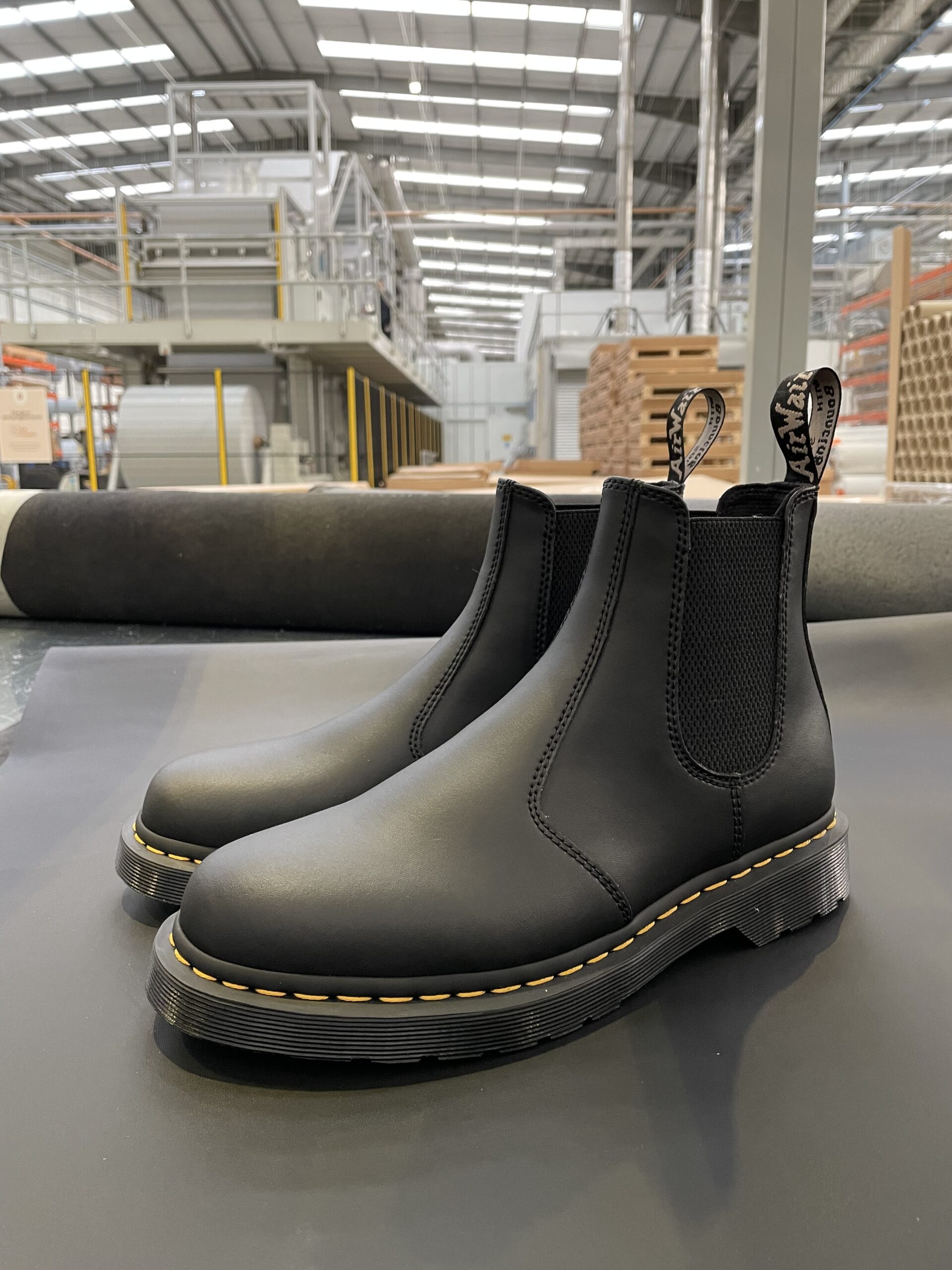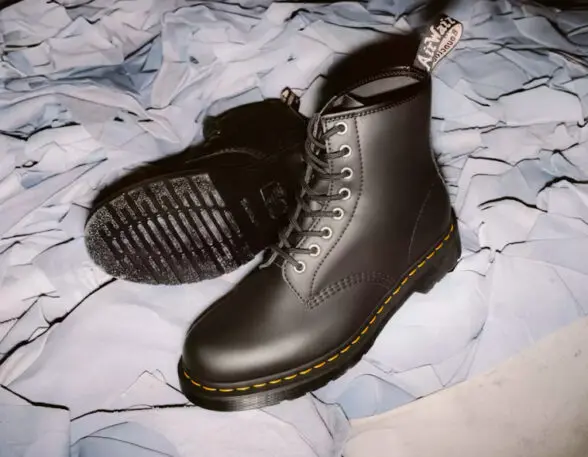
Gen Phoenix and Dr. Martens are partnering to turn leather offcuts into new material for three of its most popular style.
Your next pair of Dr. Martens boots could be made from reclaimed leather. The iconic boot brand has partnered with materials innovation company Gen Phoenix to turn leather offcuts that would normally go to landfill into a new material. Now that material is available in three shoe styles as part of a collection out today called Genix Nappa.
The leather industry has serious environmental impacts; because it’s tied to the meat industry, leather is linked to deforestation. The process of turning cowhides into leather uses environmentally harmful chemicals that pollute water. And, on top of all that, there’s physical waste: According to one estimate, for every tonne of rawhide that goes into the leather process, more than 600 kilograms, or 60%, becomes solid waste, disposed of by leather factories without being put to use. From 1 tonne of hide, only about 200 to 300 kilograms of leather is produced.
The majority of that waste happens during the “wet blue” stage, says Gen Phoenix CEO John Kennedy. That stage refers to hides that have been tanned but not yet dyed or dried. It’s at that stage that leather manufacturers are trying to standardize the thickness of the hide or get rid of any defects, so they trim off pieces and shave down the hide, creating waste. (Other waste comes from the cutting process of the fully tanned and dyed piece of leather).
Gen Phoenix takes that wet blue waste and turns it into a new material by deconstructing it down to its fibers, and then “re-entangling” those fibers around another textile, a process powered by jets that uses recycled water. That “basically creates a cowhide again,” Kennedy says, “but it’s on a roll that’s 1.4 meters wide and up to 1,000 meters long.”

Dr. Martens and Gen Phoenix first announced they were working together in May 2023, when Dr. Martens was part of an $18 million investment round for the materials company. In reality, the partnership goes back about three years, Kennedy says; both are British companies that were located near each other and wanted to keep their innovation moving forward through the challenges of the pandemic.
The new Genix Nappa collection will come in three of the best-selling Docs styles: the lace-up boot, 3-eye shoe, and Chelsea boot. (The price points will be the same as for traditional leather.) The Genix Nappa material contains more than 50% waste leather, per the company. The rest of the material comes from that textile fabric in the center of the waste leather fibers, as well as the coating on the material. Gen Phoenix couldn’t share what that core textile is for this collection, as it’s confidential to Dr. Martens, but Kennedy notes that it uses a variety of textile sources—including recycled ones—“depending on the customer’s needs.”
“We’re led by the customer in terms of the journey they want to take,” he says. “This launch is the first step, and we have a very strong and clearly understood road map towards increased recycled content, and better and better sustainability. And it’s really for the customers to decide about the pace at which they want to go down that road.” Gen Phoenix is also looking into ways to take back its own material and reengineer that into new materials; circularity, Kennedy says, is “within touching distance” for the company.
Gen Phoenix previously worked with Coach to launch the brand’s circular sub-brand Coachtopia. Its partnership with Dr. Martens marks the second such kind between the materials company and a heritage fashion brand. (Previously, Gen Phoenix made recycled leather materials for transportation, including airlines, buses, and rail.)
For Dr. Martens, a brand arguably synonymous with leather boots, the recycled collection is a step toward its own sustainability goals. Though it’s not yet clear what percentage of sales will be made up by this Genix Nappa collection, the brand does intend to be net-zero, with 100% of its footwear made from sustainable materials, by 2040. Along with trying out new materials, Dr. Martens has recently launched a repair service in the U.K., along with a “ReWair” resale program.


